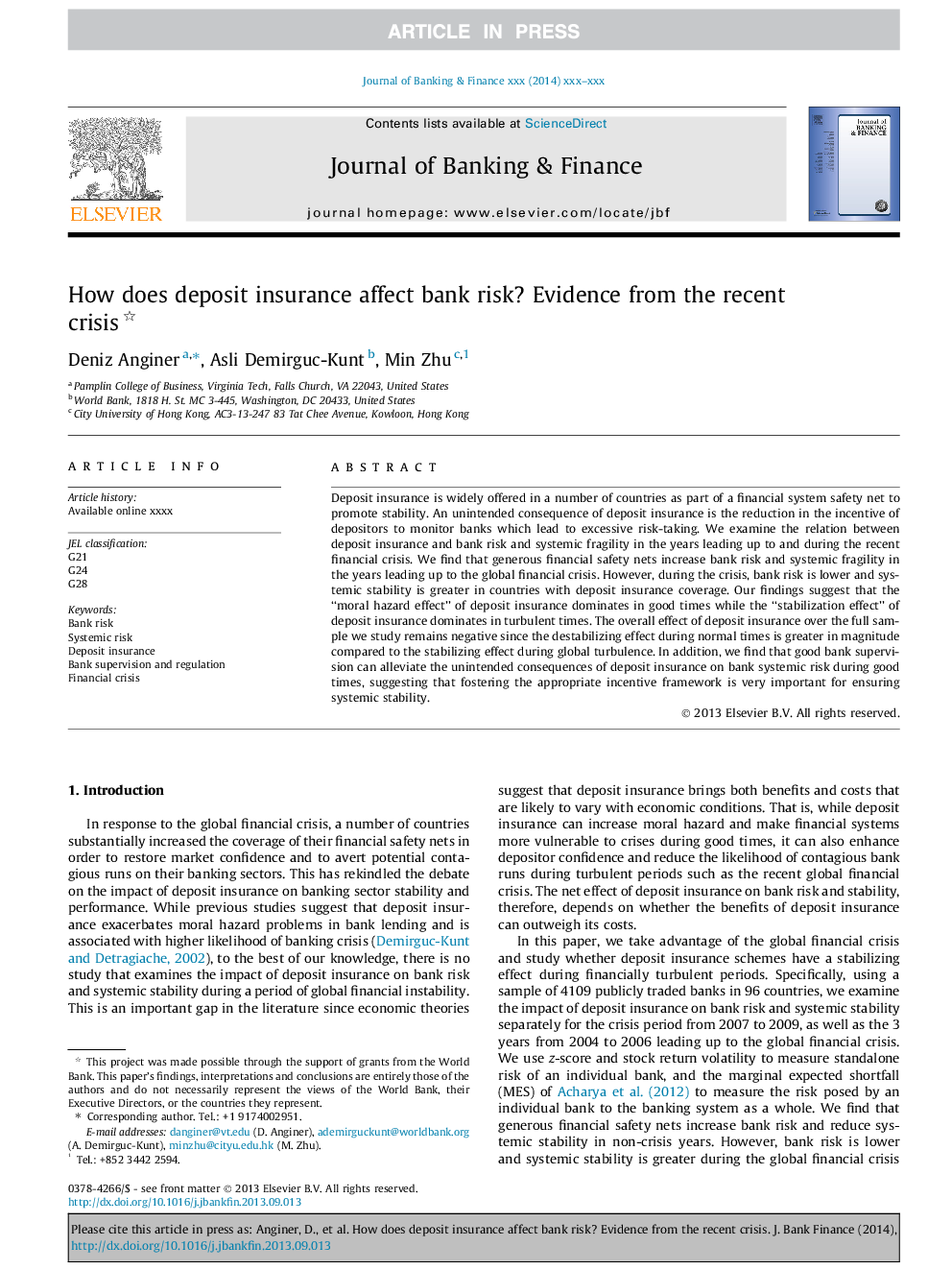| Article ID | Journal | Published Year | Pages | File Type |
|---|---|---|---|---|
| 5088796 | Journal of Banking & Finance | 2014 | 10 Pages |
Abstract
Deposit insurance is widely offered in a number of countries as part of a financial system safety net to promote stability. An unintended consequence of deposit insurance is the reduction in the incentive of depositors to monitor banks which lead to excessive risk-taking. We examine the relation between deposit insurance and bank risk and systemic fragility in the years leading up to and during the recent financial crisis. We find that generous financial safety nets increase bank risk and systemic fragility in the years leading up to the global financial crisis. However, during the crisis, bank risk is lower and systemic stability is greater in countries with deposit insurance coverage. Our findings suggest that the “moral hazard effect” of deposit insurance dominates in good times while the “stabilization effect” of deposit insurance dominates in turbulent times. The overall effect of deposit insurance over the full sample we study remains negative since the destabilizing effect during normal times is greater in magnitude compared to the stabilizing effect during global turbulence. In addition, we find that good bank supervision can alleviate the unintended consequences of deposit insurance on bank systemic risk during good times, suggesting that fostering the appropriate incentive framework is very important for ensuring systemic stability.
Related Topics
Social Sciences and Humanities
Economics, Econometrics and Finance
Economics and Econometrics
Authors
Deniz Anginer, Asli Demirguc-Kunt, Min Zhu,
